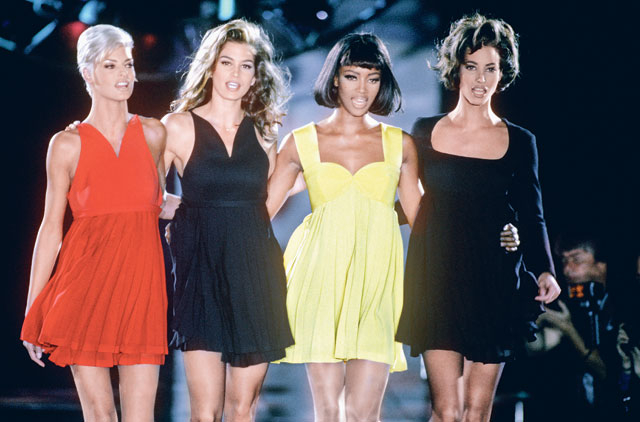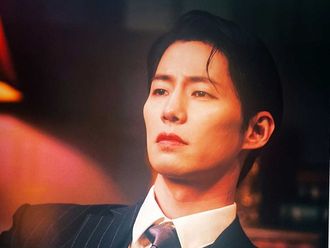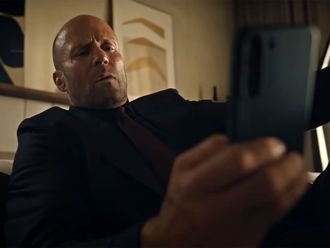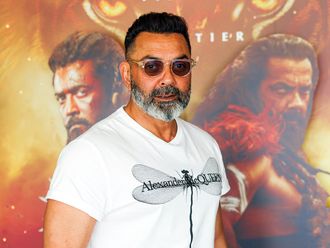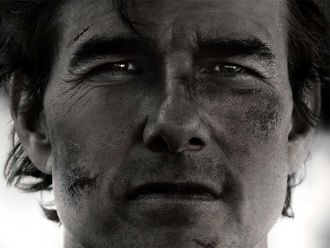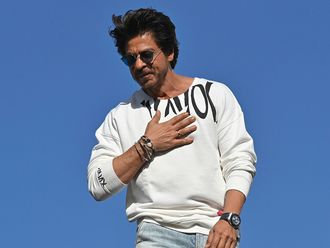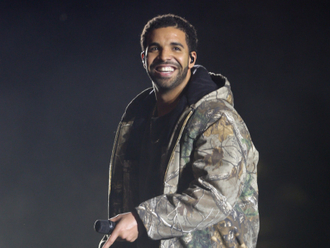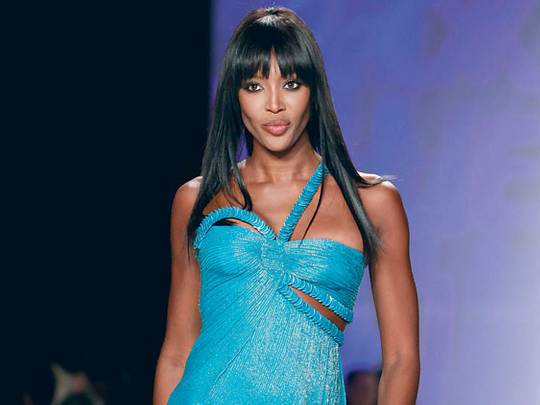
Naomi Campbell's swagger is what powers her runway strut, and it's unlikely another few uncomfortable days of attention over her testimony in the Charles Taylor war-crimes trial will change that.
She has shaken off arrests, bad press, phone-throwing and airport tantrums — and continues to work, most recently as the face of socialite designer Dennis Basso. In fact, at age 40, she's still very much in demand.
That's because no one rocks a runway like Campbell. When she steps on a catwalk, the audience is mesmerised, not only by her striking beauty but also a confidence without chink. People can't take their eyes off the woman who has posed on the cover of Vogue seven times, represented Ralph Lauren and Louis Vuitton, and donned Victoria's Secret wings.
But can the industry that props up her supermodel status turn a blind eye to the "blood diamond" allegation made at the former Liberian president's Hague trial? Taylor is accused of trading in tainted gems used to finance wars in exchange for supporting rebels in Sierra Leone in a bloody 11-year civil war that ended in 2002.
Both Campbell's former agent, Carole White, who is suing Campbell for breach of contract, and actress and activist Mia Farrow claimed in court that Taylor gave at least one diamond to the model.
Reluctantly, Campbell appeared last week as a witness under subpoena. She said she did receive a package of "very small, dirty-looking stones" after a dinner at Nelson Mandela's presidential mansion in 1997, but that she didn't know the nature or value of the stones, nor who was sending her the gift.
Ultimately, the diamonds were given to a founder of Mandela's children's charity.
Campbell issued a statement on Tuesday: "I've no motive here. Nothing to gain. I am a black woman who has and will always support good causes especially relating to Africa. I've never taken any of the jobs offered to me, over my 25 years as a model, from companies that were for apartheid in South Africa."
‘Helpful'
Campbell also stressed that the incident happened 13 years ago and that her version of events varied only slightly from Farrow.
"She [Campbell] was not on trial in The Hague and was as helpful towards the court as she could be," added the statement released by her public relations agency.
Whether the allegations prove true or not, the mere suggestion that Campbell handled a conflict diamond likely makes her poison to the fine jewellery industry, said Sally Morrison, the director of the Diamond Information Centre, an umbrella trade organisation.
"I think this time it's different because whatever controversy Naomi Campbell has had — allegedly throwing a cell phone at an assistants' head or whatever — have been ‘misdemeanours'... The allegations around Charles Taylor involve such abuse of human rights, cruelty, violence and elicit war, it's just another level, another magnitude," Morrison said.
"It might not be her fault, she might not have done anything wrong — it might only be by association — but working with her would be a step backward for the industry that has worked so hard to address the issue of conflict diamonds."
London-based celebrity publicist Max Clifford, who does not work with the model, said Campbell was likely to come out of the Taylor trial looking bad, but that it wouldn't hurt her career overall.
"It's always going to be difficult for her, because the British media don't like her. And then you've got Mia Farrow and the PA [Carole White] both making it clear that she is being economical with the truth," Clifford said, adding that Campbell's own performance on the stand was "OK".
Campbell has contended with image issues practically since she first stepped in front of a camera, back in her late '80s-early '90s glory days when she, along with Christy Turlington and Linda Evangelista — "The Trinity" — were rumoured to not get out of bed for less than $10,000 (Dh36,723) a day.
She has acknowledged past drug addiction and said on The Oprah Winfrey Show earlier this year that she struggled with anger management and abandonment issues. She has pleaded guilty in two assault cases and another incident in which she cursed and kicked two police officers at London's Heathrow airport.
Yet, she remains one of the world's most recognisable and popular models.
It's not like the fashion industry hasn't forgiven its favourite faces before: Five years ago, Kate Moss' photo allegedly snorting cocaine appeared in a tabloid newspaper and some started writing her off. This year, Forbes ranked Moss as the third top-earning model.
Campbell succeeded Moss just a few years ago in the coveted Yves Saint Laurent campaign.
Media antipathy
Last February, when she coordinated the Fashion for Relief charity runway show to benefit earthquake victims in Haiti, designers, celebrities and other models lined up to participate.
The media, especially the British media, isn't always kind to her, but, said Clifford, she has enjoyed a very successful career.
Media antipathy to Campbell stretches back many years. "She doesn't have a lot of time for them [the media] and she seems to be someone who's got a very short fuse," Clifford said. "It's not a combination that works very well."
The public hasn't fully turned on her, though. "She is one of those larger than life characters — there's always some drama around Naomi Campbell — and we all love to read about her and gossip about her and we almost expect drama from her," observes Morrison.
Taylor's trial will be out of the headlines soon enough, she adds. "Look, this is a culture with a very, very short attention span. In England, we say, ‘Today's newspaper wraps tomorrow's fish and chips.'"


